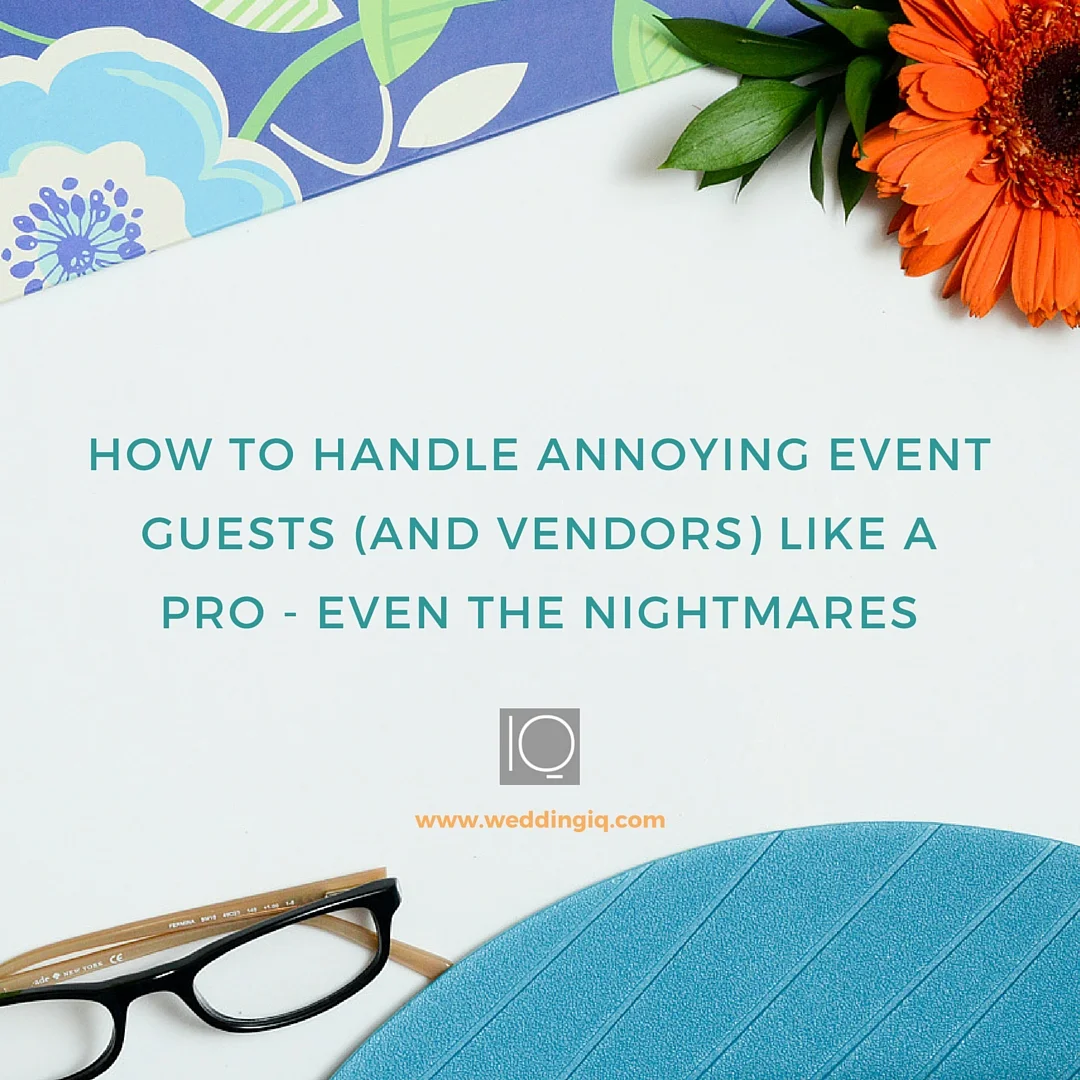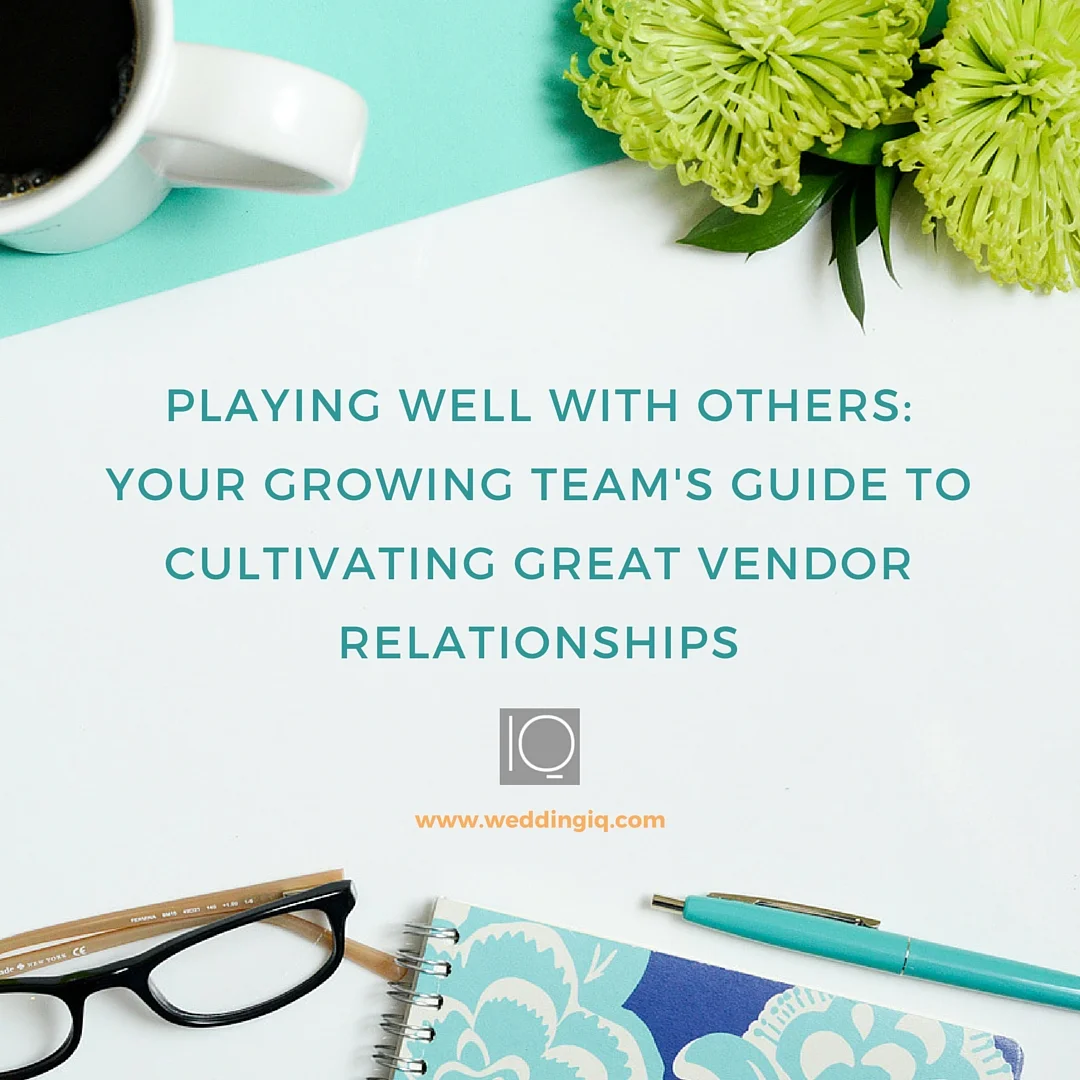How to Train Your Team to Resolve (or at Least Mitigate) On-Site Emergencies
(Editor's Note: Today's post concludes our three-part training series on event day management!)
Earlier this month, I wrote about how to train your team to avoid event-day emergencies, simply by creating systems to prepare for events and cultivating a mindset that makes such preparation a priority. Unfortunately, the fact remains that emergencies do happen at events. They happen all the time, sometimes even in spite of our best efforts to avoid them. In my own company, we've dealt with major weather catastrophes, power failures, vendor no-shows, and (worst of all) sudden medical crises involving guests.
No checklist or rah-rah coaching is going to prevent those kinds of things from happening. But what you can do is to train your staff members to stay calm in a crisis and be resourceful in solving a problem to the best of their ability. While an event day emergency can be disastrous and heartbreaking to the couple getting married, they are unlikely to hold you and your business liable - whether legally or in the form of a complaint or bad review - if you have legitimately done everything you can to resolve the situation, and have kept your cool while doing so.
Every business owner with a staff knows the stressful feeling of sending their team members off to events and hoping that nothing major goes wrong. Here's what you need to teach them to keep that from happening (or at least to minimize the chances).
Ask Yourself, "What's the Worst That Could Happen?"
Every business, obviously, is different. What can go wrong for a florist is totally different from what could go wrong for a caterer. In my primary business, a DJ company, an emergency-in-the-making might be an inadequate (or nonexistent) power supply, or a loss of sound from our equipment - things that wouldn't be a factor for, say, a wedding cake provider.
As you prepare for your training session, brainstorm everything that could possibly go wrong on site at an event, from the time a staff member arrives at the venue until they've departed at the end of the night. Consider what issues might arise with load-in and load-out, with electricity and the structure of the venue itself, with the equipment and materials you use, with other vendors and with guests.
Once you have a clear picture of everything that might happen, you can more thoroughly train your team to deal with the possibilities.
Teach a Mindset of Calmness and Clear Thinking
Ideally, the people you've hired for your business will already be resourceful, able to creatively solve problems, and naturally stay cool under pressure. Even the most poised among us can easily become flustered when something goes wrong at a wedding, however, which is why it's important to empower your team with some mindset training well in advance.
The writer Josiah Gilbert Holland once said, "Calmness is the cradle of power," and it's so true. Nothing can be resolved when we're panicking; rather, it's essential to remain as calm and focused as possible. (In other words, don't be among the many wedding vendors my team has seen who have cried, pitched fits, or walked out on stressful situations altogether.)
As part of your training session, talk to your team members about what their objective should be when an emergency arises: to solve the problem if it's one that affects them, and to be considerate and assist the other vendors if the emergency is something that someone else - or an act of God - created. It seems so obvious that you shouldn't even need to point out this objective, but we've all become a little unglued during a crisis, especially when we feel embarrassed or ashamed or afraid, and reminding your staff of their most important priority can help tremendously.
Remind your team, also, of the following:
- They are capable of solving almost any problem they've created.
- You are empowering them, as representatives of your brand, to do what's needed to mitigate the damage.
- Any fallout (complaints, refunds, etc.) can be dealt with later, when you can be involved - they don't need to worry about that while the emergency is still happening.
- Emergencies can happen to anyone, and do happen to practically everyone if they stay in the business long enough.
Knowing these things goes a long way toward building your team's confidence and enabling them to control their emotions in a crisis situation. When a person doesn't have to worry about their own competence, or whether they'll be in trouble for trying to please an unhappy client, they almost inevitably make better choices. You can then provide more specific training on the steps someone should follow to address an on-site emergency, based on the situation. For example, we train my DJs to follow a simple, logical step-by-step system to addressing sound and equipment issues, which enables them to quickly isolate and correct a technical problem. It's pretty basic stuff, but easily forgotten when someone is under pressure.
Provide Resources
Most wedding business owners are usually in the field themselves on event days, but if you aren't, consider making yourself available on-call to answer questions or help to resolve problems. If you'll be working events too, or if you just want to share the burden, you might want to assign this responsibility to others on your team on a rotating basis. Additionally, think about trying to foster a collaborative team culture within your company, in which your staff members feel comfortable reaching out to one another to help solve problems.
If the kinds of emergencies in your service category tend to be equipment-related, or if you notice any particular patterns in the emergencies you've experienced, you can create a written "troubleshooting guide" that your team members can bring with them to events to help them. Sometimes just seeing things on paper can have a calming influence when a person is in panic mode.
Finally, if your company has backup equipment and/or staffing available on event days, make sure your team knows how to access them - this is yet another example of how having a system in place well before it's needed can be a lifesaver when something goes wrong.
Role-Play Emergencies Before They Happen
This is a great activity for your training session or another team meeting. Have various staff members actively role-play the kinds of crisis situations that can arise. As part of my company's training, we'll set up a DJ system but secretly mix up a couple of wires or disconnected something random. We'll then invite the DJs to show off their mixing skills - of course, they'll quickly find out no sound is coming from the speakers, and then it's on them to walk through the problem-solving steps we've given them, identify the problem, and solve it.
The kind of role-playing you do will, of course, vary depending on the type of service your company provides. This activity is an invaluable exercise that makes your team members feel more confident and capable than ever, in a low-stakes setting with lots of support. Once they know they can get to the bottom of an issue before it significantly impacts a wedding, they'll feel much more able to do it in real life.
I'll be wrapping up the topic of event day management training with a final post next Monday, in which I break down how to identify and implement your company's emergency backup plan. Be sure to check back then!










